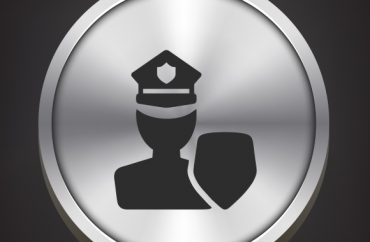
A recent survey of American educators finds that while the profession overwhelmingly supports the Black Lives Matter movement, it also wants to keep police officers in the nation’s schools.
The EdWeek Research Center survey asked the simple question “Do you support the Black Lives Matters movement?” to which over 80 percent of the teachers, principals, and other education personnel who responded answered “yes.”
By contrast, fifty-one percent of the general public responded “yes” in a Civiqs poll, and a total of 67 percent said they “strongly” or “somewhat” support BLM in a Pew Research survey.
I note this question is “simple” because it is; there are many people (like myself) who agree that black lives do matter, but the actions and (many of the) goals of the “official” organization are loathsome.
Even with support of BLM, most educators want police officers to remain in schools. Education Week reports:
Despite their high levels of support for Black Lives Matter and the reexamination of the role of law enforcement by school boards and union leaders, most of the rank-and-file educators who responded to the EdWeek Research Center survey oppose the removal of armed police officers from schools. Just 23 percent say that armed police officers should be eliminated from our nation’s schools—although support for severing ties with law enforcement ranges from 36 percent in the Northeast to 13 percent in the southern United States.
This flies in the face of the American Federation of Teachers, the second largest teachers’ union, which issued a resolution in support of BLM and “replacing local law enforcement with ‘[s]chool security personnel…trained as peace officers and integrated within the school community, with a focus on nonviolent resolution of conflicts with a minimal use of force.’”
E.W. notes more teachers and administrators want a cop in their school as protection against an outsider coming in with harmful intent as opposed to help with out-of-control students. Still, almost two-fifths of teachers want an officer on the premises for that very reason.
Also of note is that “contrary to the evidence,” most educators — a whopping 91 percent — believe school officers treat minority students fairly. (The only “contrary evidence” is figures for police interaction compared to general population numbers, i.e. “disparate impact.”)
While educators may think school cops are fair, they have an issue with themselves and their administrations: Discrimination is noted as the main reason black students receive more punitive discipline like suspensions and expulsions, ranking higher than home/family structure. Perhaps the silly (and almost racist) wording of the statement — “On average, white students’ families create home environments that are less conducive to developing negative behaviors” — played a role in how folks responded.
Consider the first statement in this part of the survey which educators were asked to rank “not at all,” “slightly,” “somewhat,” “quite,” or “extremely”: “As a result of genetics, white students are less likely than Black students to commit disciplinary infractions.” Thank goodness 93 percent answered “not at all.” (The other seven percent should reconsider their choice of profession.)
But seriously, genetics? What’ll be on the next survey — a question on phrenology?
MORE: 50% of teachers say they’ve ‘seriously’ considered leaving profession
MORE: Parents, don’t let your kids’ teachers be their only teachers
Like The College Fix on Facebook / Follow us on Twitter







Please join the conversation about our stories on Facebook, Twitter, Instagram, Reddit, MeWe, Rumble, Gab, Minds and Gettr.